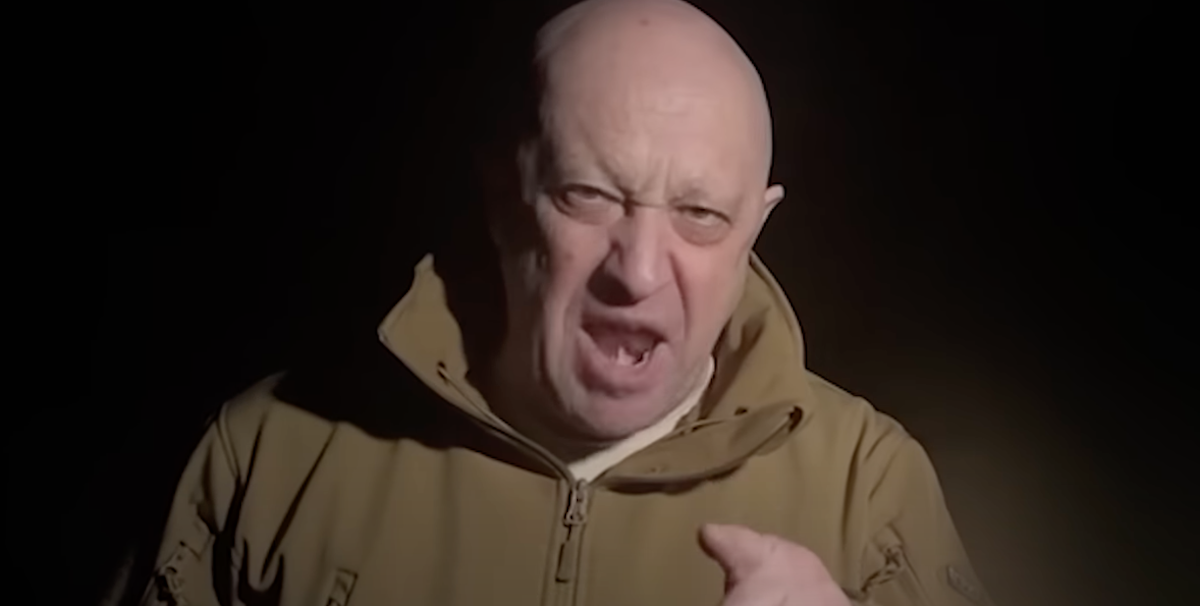Loading player
On Friday morning Yevgeny Prigozhin, founder and head of the Russian mercenary group Wagner, said in a video posted on Telegram that his men will withdraw from Bakhmut, a city in eastern Ukraine that Russia has been trying to conquer for weeks, suffering enormous losses. Prigozhin justified the decision by arguing that his group would not have enough weapons and ammunition to continue fighting, and blamed it very aggressively on the Russian government.
Prigozhin said the Wagner group’s withdrawal would take place on May 10 out of respect for Victory Day celebrations on May 9, Russia’s national holiday commemorating the Nazi surrender in 1945. It was not yet known whether Prigozhin would actually follow up. to his threats: the announcement could also be an attempt to obtain concessions from the Russian government.
However, the announcement was much taken up and commented on, for two reasons. First, because the military operations in Bakhmut are managed almost entirely by the Wagner group and the withdrawal of the mercenaries could seriously undermine Russia’s aspirations to conquer the city. And also because it is not so usual for Putin’s regime to be publicly criticized by someone who is allied with it, such as Prigozhin and the Wagner group, even if in the past Prigozhin himself had already used very harsh words, especially against the Russian Defense Ministry: but never before with this intensity.
In Bakhmut, a small, now half-destroyed town in eastern Ukraine, both the Russian army (together with the Wagner group, which makes up a large part of the Russian forces in the area) and the Ukrainian one have been facing each other for months with huge losses, in a battle which despite not having a great military value has now assumed a profound symbolic meaning for both parties.
In the night between Thursday and Friday Prigozhin had published another video in which he had criticized the defense ministry and the leaders of the Russian army.
This first video showed Prigozhin in a field in front of what he claimed were dozens of corpses of mercenaries killed in Bakhmut. Yelling at the camera, he addressed Sergei Shoigu, Russia’s defense minister, and Valeri Gerasimov, commander of Russian operations in Ukraine: ‘These are the kids who died today. The blood is still fresh,” Prigozhin said, pointing to the corpses around him. “They came here as volunteers and are dying so they can fatten you up in your offices. […] Shoigu! Gerasimov! Where the fuck is the ammunition?’
In Friday morning’s message announcing the withdrawal from Bakhmut, Prigozhin continued to criticize the Russian army, accusing its leaders of being “jealous” of the successes of the Wagner group, which is why they would not send new loads in recent weeks of ammunition to the group.
At the moment there have been no official comments from the Russian government on Prigozhin’s words, which in any case should be taken with some caution. Prigozhin is in fact known for making utterances which he then does not follow up on: a week ago, for example, he said that his men would suspend the fighting in Bakhmut to allow the Ukrainian forces to show US journalists the city; the next day, however, he had retracted his statements, saying they were a “joke”.
– Read also: “Mercenaries” or “contractor”?
The Wagner Group is a PMC (Private Military Company) made up mostly of Russian ex-military, ex-policemen and ex-security agents. It has existed for about ten years: it would be a private group of mercenaries, but in fact it has always been rather close to President Vladimir Putin, who has used it on several occasions as an instrument of his military strategy. In recent years he has fought several wars where Russia had an interest in intervening, in African and Middle Eastern countries such as Libya, Mali, the Central African Republic and Syria.


